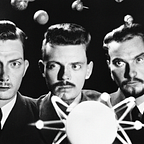Autonomous Tractors On Corporate Anti-Pirate Mega-Farms
Greg Ferenstein’s utopian look at self-driving taxis dovetails nicely with some agriculture themes I’ve been exploring vis-a-vis autonomous tractors.
And an entry in the market category from John Deere:
The same John Deere as:
GM, meanwhile, alleges that “Proponents incorrectly conflate ownership of a vehicle with ownership of the underlying computer software in a vehicle.” The problem with these arguments is that while existing software laws confirm that individuals are licensing code rather than purchasing it when they buy a license from Adobe or Microsoft, the cases in question did not generally anticipate that the code would be used to artificially create extremely high barriers to repair. As tractors have gone high tech, John Deere has aggressively locked away critical information needed for adjusting either aspects of the vehicle’s timing and performance or the necessary information to troubleshoot problems.
This push makes a lot more sense if an “autonomous Internet of Things” is on your radar as a future possibility. All told, I’m a bit ambivalent about the technological direction these things seem to all be pointing towards. But it would “make sense” from the perspective of the manufacturer that if you’re selling a “self-driving” or “autonomous” car or vehicle controlled by complex software, then you the manufacturer are technically liable for ensuring the safety and proper functioning of that software. So of course your next logical step will be to try to prevent anyone from circumventing the software in your “ecosystem.”
But now apply this same idea across an enormous varied complex networked system of autonomous agents. A fleet of autonomous cars by many different manufacturers running many different operating systems?
What about an autonomous tractor applying chemicals provided by a manufacturer who just so happens to control the patent on the GMO varieties being grown?
Suddenly, all of these technologies, taken to their logical conclusions and confluences paint a possibly scary vision for the future of agriculture: vast swaths of productive land managed by robots, autonomously taking GPS commands and running orders from faraway computer analysis systems.
It sounds pretty freaking nutty to me, but welcome to the future.
